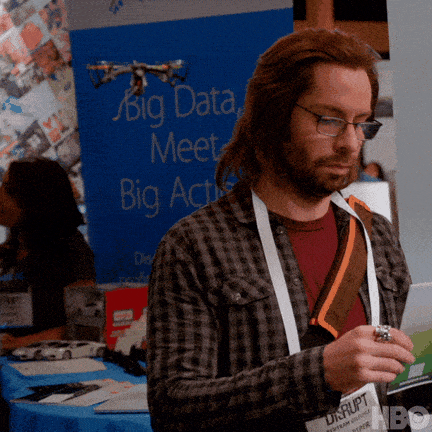- Cyber Patterns by Jason Levin
- Posts
- How we market to engineers @ jam.dev
How we market to engineers @ jam.dev
Tip #1: Engineers hate marketing
Anybody can market to idiots.
See Andrew Tate for example. Hot girls, fancy cars, misogynistic rhetoric. He markets towards idiots—and luckily for him, the internet has A LOT of idiots.
But what if you’re marketing towards smart people?
Genius AI engineers. 19-year-old Stanford dropout founders. Billionaire VCs. How do you market towards them?
Since January 2023, I’ve been helping to grow startup Jam.dev, a bug reporting tool that makes reporting and correcting errors in software 20x faster. If you see a bug, you click Jam’s Chrome extension, it grabs a video of the last 30 seconds, and then turns it into a shareable link with all the relevant info. During the last 18 months, we’ve scaled up from 15,000 users to over 125,000 users at companies like Salesforce, Ramp, UiPath, Wix, and more.
Engineers have a reputation for being allergic to marketing. So how’d we get 125,000+ brilliant people using Jam? Today is a collaborative post with Jam's Head of Marketing Ivanha Paz. Together we’ll tell you what we’ve learned marketing to engineers.
Engineers hate marketing.
That’s it. The entire essay.
Ok jk, but selling to developers is notoriously difficult. Every lecture, blog post, or podcast on the subject starts off with why selling to developers is so hard. But the truth is that engineers—like every human on earth—just don’t like being spammed, feeling tricked, or wasting their time.
If an engineer is getting marketed to by a marketer who has no idea how the product works, they can sniff that out a mile away. There’s a huge technical knowledge gap. Why should an engineer waste time listening to a non-technical marketer? I sure as hell wouldn’t listen to an engineer telling me about marketing! So how do you fix this gap?
Study your product and its place in history.
I studied English and Ivanha studied journalism. I learned a bit of coding online, but neither of us are “technical”, so the learning curve joining Jam was steep. But as my Dad says, the only way to eat an elephant is one bite at a time.
Dive into your product headfirst. Learn literally everything you can. You don’t need to learn how to code per se, but you should know why your product is a big deal for engineers. For example, I had no idea that in order to fix bugs, developers needed to know what browser people were using, so that’s why Jam sends over all that info and more in the recordings.
Something I found super helpful was our founder Dani sent me reading materials on the history of bug reporting. While I might not know how to code well, I understand storytelling—and marketing is just storytelling. Reading the history of bug reporting helped me understand where our product fit in the story and why it’s revolutionary. Like did you know bug reporting started out on paper??? Then it progressed to text files and then Jira and then it was basically stuck in the 1990s before Jam came along. If you’re marketing towards engineers, you don’t necessarily need know how to code—but you need to know where your product fits in the story of software engineering.
Next, go talk to users.
Engineers are scary I know, but you NEED to talk to users.
Marketing is all about getting inside other people’s brains and finding problems you can solve. And sure you can try to do that by listening to podcasts, but it’s a lot easier to just ask people questions.
Get on the phone with users and potential customers. Go to meetups. Get coffee with people from Twitter. Ask questions on subreddits. Host events (we do this monthly, more on this below). Ask them to explain things to you like you’re 5 (I frequently do this and it gets a good laugh and shows I’m humble enough to know what I don’t know). Do whatever you possibly can to get close to users. Find out how they think, what makes them tick in their work, and the problems your company can solve. Don’t be afraid of engineers, talk to them (although they may try to swat you like a fly)

Next, try a bunch of things.
Is there a secret marketing playbook for engineers?
Not really.
Besides the above challenges, marketing a dev tool is pretty much the same as anything else: try a bunch of growth channels and experiments, track data, and double down on what’s working and iterate/stop what’s not working. To track and iterate on growth experiments, Jam used a simple Notion template.
Here’s what working for Jam:
1) In-person events are our biggest community initiative.
 |  |
We host Tech Talks and AI Demo Nights every month, and we’ve been very intentional about the purpose of Jam events:
Support developers with a platform to share and learn from each other’s work
Bring interesting people together so they can meet more interesting people
Get a real pulse of our community and who they are by getting to know them IRL
Startup events should be fun, not low-effort networking mixers.
For one Jam event, we hosted a bug horror story night where we brought in engineers from Twitter, Amazon, and more to tell their worst bug stories. Be intentional, make memories.
We’ve also been very intentional about what’s NOT the purpose of Jam events! We don’t host events to get leads or start sales conversations. So, we don’t do drip campaigns or send any marketing emails besides upcoming events. Developers appreciate it and trust us more because of it.
Dani publishes 1-2x/day on LinkedIn and Twitter focused on building in public and sharing what's worked for her and the team.
The idea here is not to be preachy or cocky—but to tell stories about what worked for the team from personal experience. Dani has done posts on everything from how a cold email landed her her first tech job to sharing our real pitch deck to help other founders. Dani now has an audience of 22,000+ across X and LinkedIn! Founder-led marketing is where it’s at.
We’ve taken the same storytelling approach to video. We have an in-house video creator named Ian who tells stories in video-form about building Jam. Everything from Behind Our Website Revamp (Of a Series A Startup) to 8 Lessons I Learned Growing a Startup in 2023 to now a weekly podcast called Building Jam where the core team talks about building Jam!
Telling stories is the oldest form of communication. A good story never goes out of style—so tell your startup’s story in style.
3) Product marketing all the time, everywhere.
For early-stage startups, what you’ll find is that product marketing is much harder to go viral than founder-led marketing or building in public.
No one cares about your product at first. You’re not OpenAI with people watching your every move (yet). So don’t be surprised if your tweet about your newest feature update doesn’t go viral (as cool as the feature is).
How do you get people to care about the product then?
You tell stories—you share stories and offer valuable insights to build your audience then share about your product to convert some % of your audience into users. It’s basically the ACP Funnel I talked about last week.
Every startup is a media company.
Every founder is an influencer.
— Jason Levin (@iamjasonlevin)
5:02 PM • Mar 5, 2024
Make sure nothing feels like marketing.
At Jam, we joke that our marketing team is anti-marketing—but we’re not actually. We’re just against marketing that feels like icky marketing.
When you make your marketing synonymous with building community, helping people, and brightening their day with the occasional dank engineering meme, maybe even devs will love you.

To get my posts in your inbox every Sunday, subscribe here:
My adventures this week
 Coffee and the Guggenheim museum |  Kicked off filming for Product Hunt Youtube |
Tech Memes of the Week
WHAT AN INSANE WEEK.
They got the vegas ball. It’s all over. We lost.
— aaron (@aaronoleary)
9:39 AM • Jul 19, 2024
When you workin late and get hungry
— Jason Levin (@iamjasonlevin)
5:50 AM • Jul 17, 2024
“I am not like other tech bros”
Should I burst his bubble?
— Erica Levin (@bankof_amERICA)
1:25 PM • Jul 17, 2024
Inside Out but it's just the male emotions (anger, stress, beer, nicotine, and gambling)
— Ani Iyengar (@aniiyengar)
5:52 AM • Jul 16, 2024
Thanks for reading nerds.
Create some cool shit this week.

Jason “The Memelord” Levin
Head of Growth @ Product Hunt, Author of Memes Make Millions
